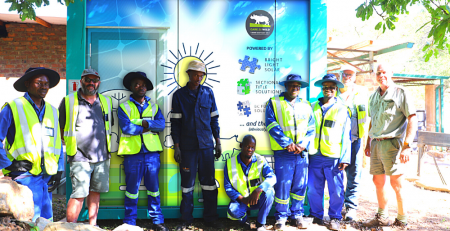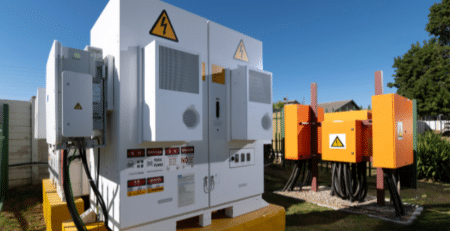Sustainability measures to save costs and increase property value
Henry David Thoreau once asked, “What is the use of a house if you haven’t got a tolerable planet to put it on?”
As the world faces pressing environmental issues, it is crucial to take part in protecting the planet, and the property sector is no exception. Property developers, managers, and investors have started prioritising green initiatives and adopting sustainable practices in their developments.
Besides being good for the environment, sustainable practices can also save costs, increase property values, and improve residents’ quality of life. With National Environment Month in June and World Environment Day on June 5, now is the perfect time to start taking eco-friendly steps to contribute to a sustainable future.
Here are some measures that can help community schemes become more environmentally friendly and increase property value:
Efficient Energy Solutions
Reducing energy consumption in your community scheme is one of the easiest and most effective ways to save money, lessen your environmental impact and increase the appeal and value of your property. Replacing traditional light bulbs in common areas with energy-efficient alternatives and ensuring that lights are switched off during daylight hours is a simple way to begin.
Another impactful step is to install solar power systems. With our Solar Solution, the installation, maintenance, insurance, and monitoring are taken care of, requiring no upfront capital investment from the body corporate. This fully funded solution recovers its cost through a lower tariff charged on the electricity used, resulting in savings for the entire scheme.
Incorporating Battery Backup and Storage Solutions into the solar installation allows unit owners to utilise stored energy as needed. By charging the battery during periods of low electricity demand and discharging it during high demand times, the community can effectively reduce their use of fossil fuel-based electricity.
Reduce water consumption
South Africa’s water scarcity and vulnerability to climate change make it essential for communities to adopt sustainable practices that promote responsible water usage.
One way to lower costs for all unit owners is to conduct a water audit to identify areas where water usage can be reduced. This may include fixing leaky taps, pipes, and toilets, installing low-flow showerheads and taps, and implementing a greywater reuse system. Rainwater harvesting systems can also be installed to reduce the demand for municipal water supply.
Installing individual water meters for sectional title complexes is a better way to manage and monitor water consumption than traditional bulk metering. They provide an effective way to monitor water usage and identify areas where water can be conserved. This can also help reduce water bills and encourage residents to be more mindful of their water usage.
Landscaping
Creating green spaces within community schemes offers numerous benefits. Planting trees on common property can provide shade, reduce heat, and absorb carbon dioxide. Moreover, trees can also enhance biodiversity and provide habitats for various wildlife species. Planting any kind of garden can balance out activities that cause carbon emissions. This includes herbs, flowers, and vegetables. Water-saving plants and indigenous species can conserve water while attracting pollinators like bees and butterflies, helping reverse their decline.
Green roofs and vertical gardens can also be installed to insulate buildings, reduce energy costs, and provide an additional habitat for plants and wildlife. Besides, they can reduce the urban heat island effect and improve air quality.
Hydroponic farming, powered by solar installations, offers an eco-friendly option for fresh produce and income generation.
Use sustainable materials
Community schemes can combat plastic pollution by opting for sustainable materials. Using recycled plastic for outdoor furniture and infrastructure not only reduces waste but also supports eco-friendly initiatives. It offers durability, low maintenance, and a long lifespan compared to traditional wood.
Responsible waste disposal
In South Africa, waste management is a significant challenge, with landfills reaching capacity, illegal dumping, and littering being common. Community schemes can take action to reduce their waste production and implement recycling practices. Implementing a recycling program and segregating waste can reduce the amount of waste that ends up in landfills.
Another way to reduce waste and promote sustainability is through composting. Composting allows residents to turn their organic waste into nutrient-rich soil that can be used in gardens and landscaping. This not only reduces the amount of waste sent to landfills but also saves money on fertiliser and soil amendments.
Conclusion
Implementing eco-friendly practices in sectional title schemes and gated estates can have a positive impact on the environment, as well as on property value. By making a few of these simple changes, community schemes can also save costs in the long run. In addition to the environmental and financial benefits, eco-friendly practices can also promote community engagement and create a more desirable living environment for residents.
At STS, we prioritise sustainability and offer solutions to help community schemes attain a greener footprint. We understand that the cost of eco-friendly upgrades can be a concern, which is why we offer project funding to help schemes make immediate upgrades without raising special levies. By making a commitment to sustainability, community schemes can contribute to a healthier planet and a better future for generations to come.
Contact us today to find out how we can help “green” your community scheme!





